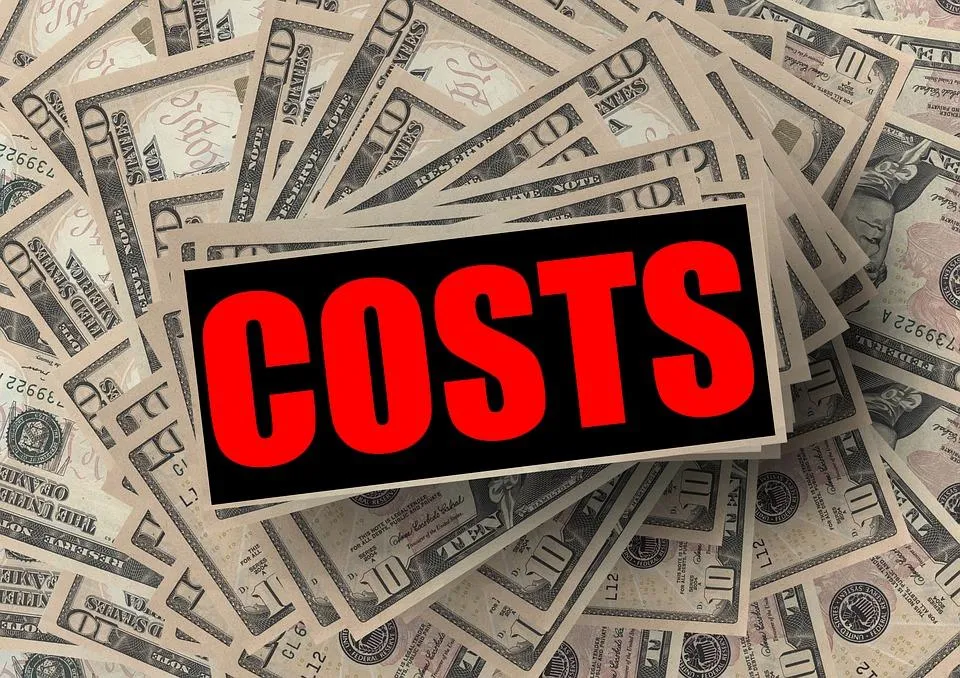
Understanding Medicare Part D Costs
Understanding Medicare Part D Costs
Key Takeaways:
The cost for a Part D plan varies depending on your needs, policy, and financial assistance. The premium can range from around $30 up to $100+ depending on deductibles and drug coverage.
Your income can affect your premium, known as the income-related monthly adjustment amount (IRMAA).
If you go 63 days or more without creditable drug coverage after your Initial Enrollment Period, you may have to pay a late enrollment penalty.
What is Medicare Part D?
Medicare Part D is a medication insurance program administered through private insurance companies. It’s essential to know Part D has:
Different levels of coverage and costs.
A specific list of drugs available for each plan.
A list of in-network pharmacies that you are required to use after enrollment.

How Much is Medicare Part D?
You pay a monthly premium for prescription drug coverage in addition to your Medicare Part B premium. The Centers for Medicare and Medicaid Services projected the average Part D premium in 2024 would be $55.50, though the cost can vary with different plans.
Part D costs depend on:
The prescription drugs you need
The plan you join
Whether you use a pharmacy in your plan’s network
Whether the drugs you use are on your plan’s formulary
Whether you’re eligible for Extra Help (a financial assistance program)
Other costs to consider:
Medicare Part D monthly premiums
Medicare Part D annual deductibles
Copayments or co-insurance
Late enrollment penalty
Is the Medicare Part D Premium Based on Income?
Your income plays a role in determining your Part D premium. You’re required to pay more for your prescription drug plan if you made more than $103,000 as an individual or $206,000 as a couple when filing your most recent tax return. The calculation is known as the income-related monthly adjustment amount (IRMAA).
The IRMAA rates for 2024 are listed below:


How Does Medicare Part D Work?
Medicare Part D plans have different levels of “tiers,” which determines the cost of certain prescription drugs on the plan’s formulary list. Medications that fall into the first tier have the lowest copays or copayments. The price goes up with each tier.
Tier 1 has the lowest copay for generic drugs. To receive approval from the Food and Drug Administration, generic drug makers must prove that their product performs the same way as the corresponding brand name drug. Generic drugs use the same active ingredients as brand name drugs to achieve desired results.
Tier 2 has a medium copay for preferred brand name drugs. Preferred brand name drugs are medications manufactured by one manufacturer that are typically lower-cost among all brand name drugs. This is partly because these medications have been in the market for some time and are widely accepted).
Tier 3 has a higher copay for preferred brand and non-preferred brand name drugs. Non-preferred brand name drugs, on the other hand, tend to cost more because they are new to the market. You may have heard the term “designer drugs.” These high-cost drugs fall into the same category.
Tier 4 has a higher copay for non-preferred brand drugs and non-preferred generic drugs.
Tier 5, or the Specialty Tier, has the highest copay. It contains very high cost brand and generic drugs, which may require special handling and/or close monitoring.

Medicare Part D Payment Stages
There are four stages of costs for Medicare Part D. You’re responsible for paying different amounts in each stage.
Stage 1 annual deductible
Stage 2 initial coverage
Stage 3 coverage gap, or “donut hole”
Stage 4 catastrophic coverage
How Much Is the Lifetime Late Enrollment Penalty?
You should be aware of Medicare Part D’s lifetime late enrollment penalty if you miss the Initial Enrollment Period. The penalty applies if you go for more than 63 days after your Initial Enrollment Period without creditable drug coverage.
The late enrollment penalty cost is calculated by Medicare when you enroll in a Part D plan. To calculate the penalty, multiply 1% of the national base beneficiary premium (which is projected at $34.70 in 2024) by the number of eligible months you did not have Part D insurance. Then, you round to the nearest ten cents.
Example: Let’s say your Initial Enrollment Period ended March 31, 2020. You waited until December 2022 to join a Part D plan during the Open Enrollment Period. Your policy went into effect on January 1, 2023, which means you went 21 months without creditable coverage.
Here’s how to calculate the penalty:
.21 (multiply 1% by the number of months you went without coverage even though you were eligible to enroll) X $32.74 (2023 average Part D premium) rounded to the nearest $0.10 = $6.90
The cost of the penalty can change if the national premium average increases or decreases. A late enrollment penalty can remain in effect as long as your Part D plan is active.
Do you have more questions about enrollment and how to avoid the penalty? Check out our guide on how to navigate Medicare Part D enrollment.

Are There Financial Assistance Options for Part D?
Medicare offers a program called Extra Help to assist with Part D costs for those with limited income and resources. Extra Help is estimated to be worth $5,300 per year. If you qualify, the program helps cover your premiums, deductibles and co-insurance costs.
Extra Help Eligibility
To qualify for Extra Help, a person must be receiving Medicare, have limited resources and income, and reside in one of the 50 States or the District of Columbia. If you’re not sure if you are eligible based on income or resources, you can apply.
Ways you can automatically qualify for Extra Help:
You already qualify for Medicare and Medicaid
You are enrolled in a Medicare Savings Program
You already receive Supplemental Security Income (SSI) benefits
You’re eligible for Extra Help if both apply:
Your resources are limited to $16,600 for individuals or $33,240 for couples. Resources include savings, investments, real estate outside of a primary residence, stocks and more.
Your annual income is limited to $21,870 for individuals or $29,580 for couples.
How to Apply for Extra Help
If you don’t automatically qualify but meet the limited requirements listed above, you can apply for Extra Help online , by telephone (1-800-772-1213) or by visiting your local Social Security office. You will need bank account statements, investment statements, stock certificates, tax returns, pension award letters and payroll slips.
Sources
2023 Medicare Costs. Medicare.gov.
Monthly premiums for drug plans. Medicare.gov.
Understanding the Extra Help with Your Medicare Prescription Drug Plan. SocialSecurity.gov.
This website is operated by Derene Derricotte LLC., a licensed health insurance company. The website and its contents are for informational and educational purposes; helping people understand Medicare in a simple way. The purpose of this website is the solicitation of insurance. Contact will be made by a licensed insurance agent/producer or insurance company. Medicare Supplement insurance plans are not connected with or endorsed by the U.S. government or the federal Medicare program. Our mission is to help every American get better health insurance and save money.
Any information we provide is limited to those plans we do offer in your area. Please contact Medicare.gov or 1-800-MEDICARE to get information on all of your options.

